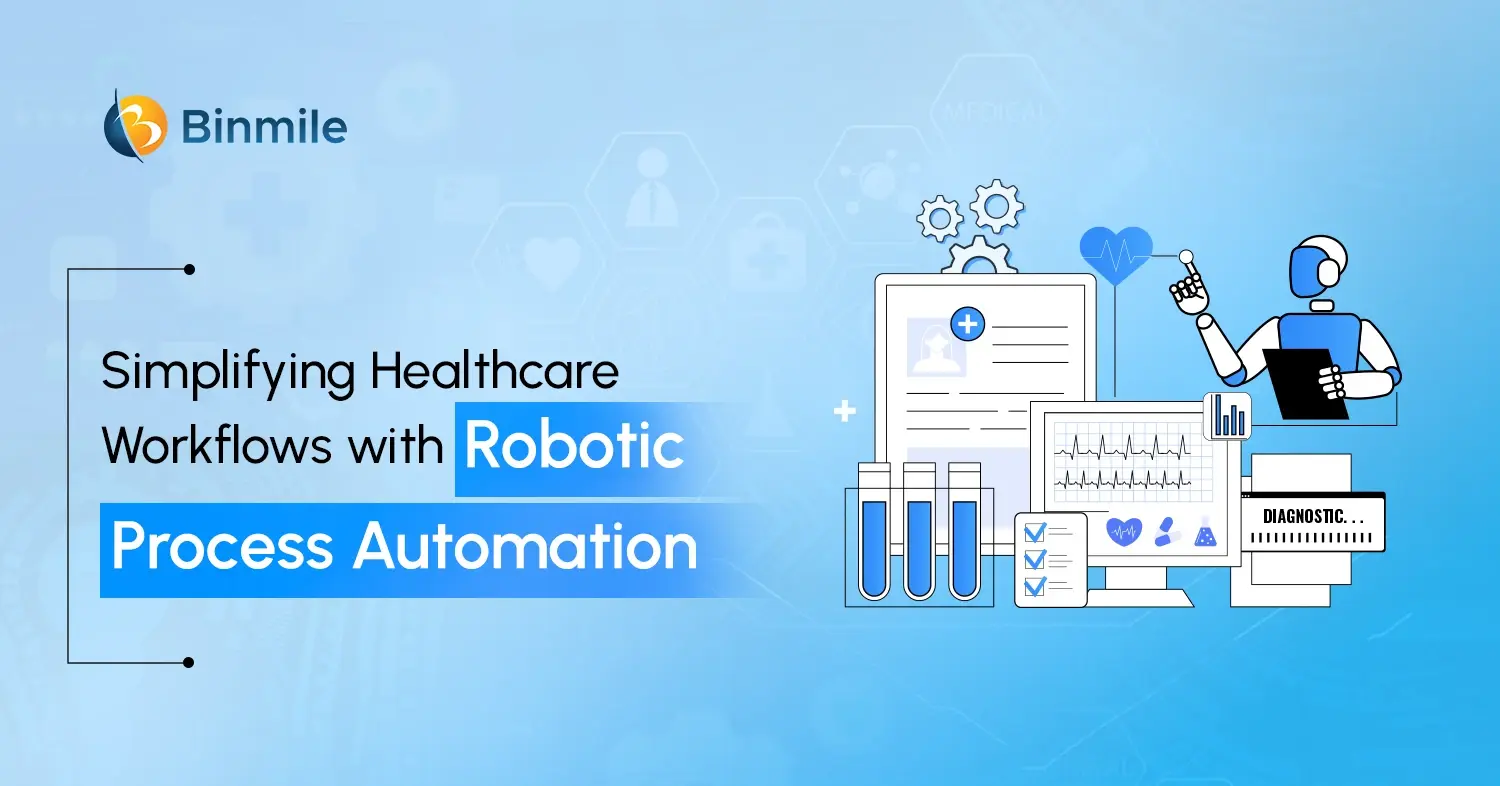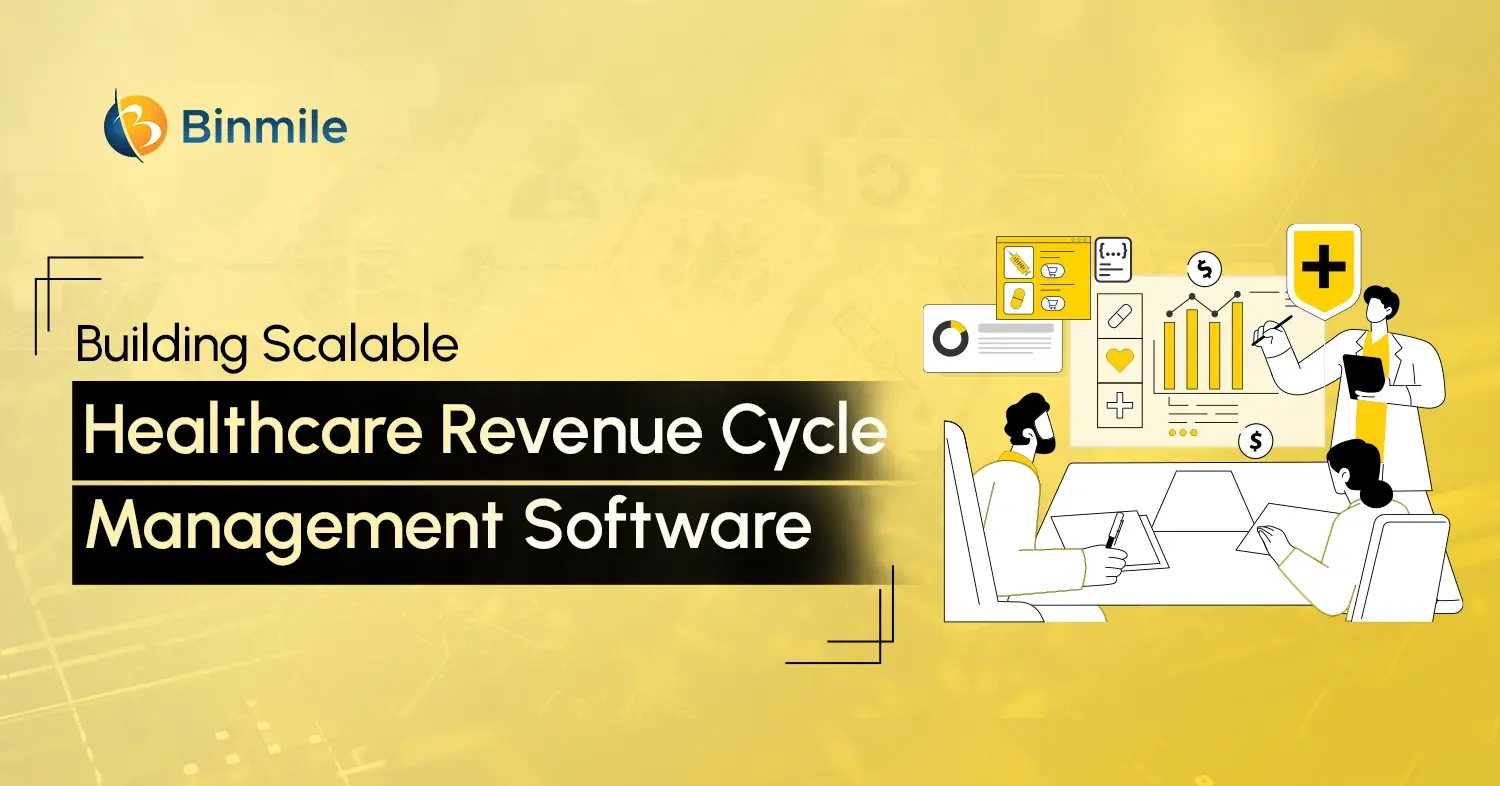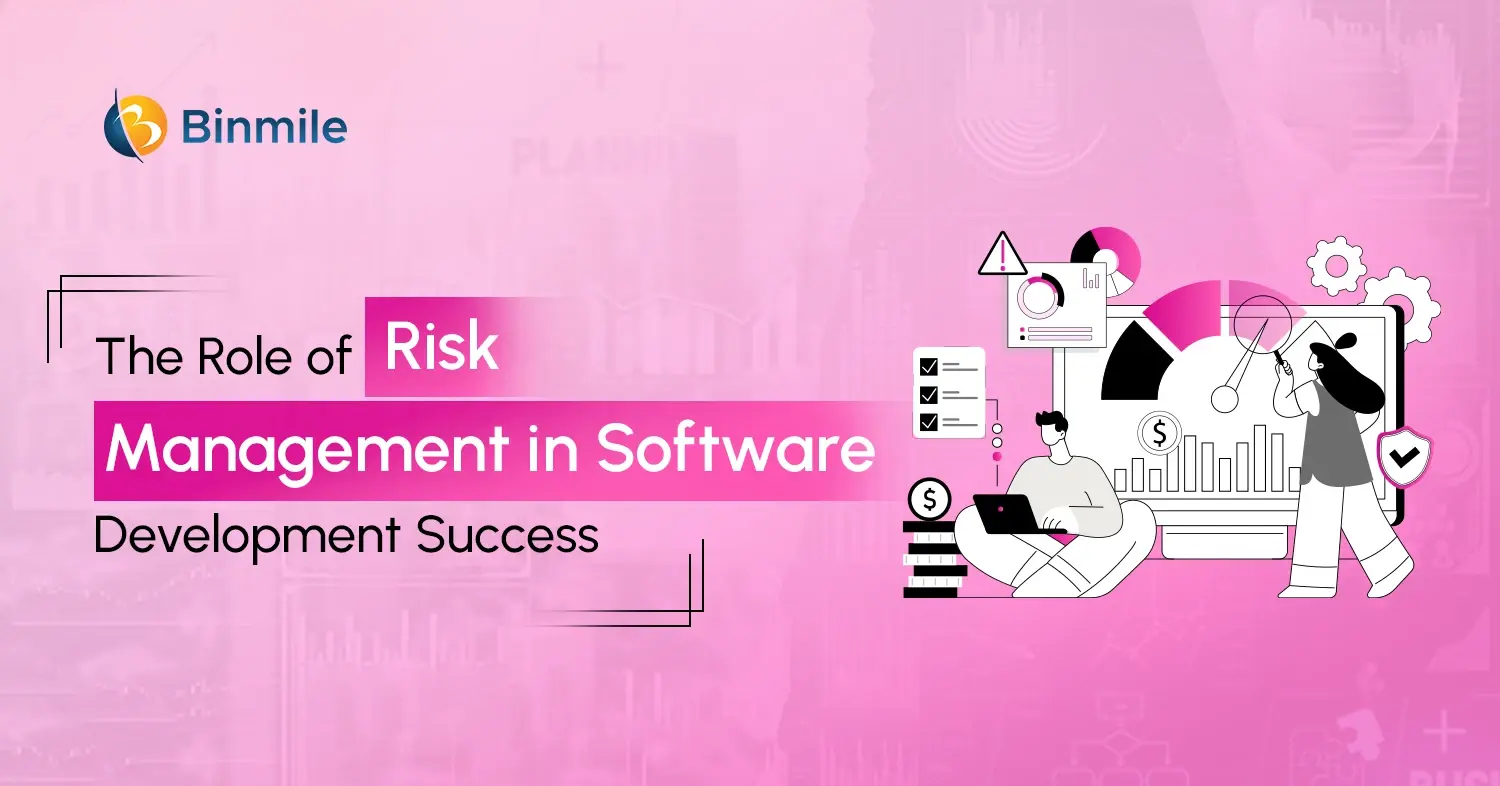The software development ecosystem has been constantly evolving, driven by the advent of several technological advancements led by no-code apps to cloud computing and generative AI. Top software development companies are preparing to enter another year of technological advancements. It’s expected that this other era of innovations is set to redefine the future of software development. They need to keep an eye on these future trends in software development. Not knowing where your company fits against these transformative software development trends means your business isn’t prepared for what it takes to stay ahead of the curve. So, it becomes essential for businesses to stay updated on this future scope of software development to remain competitive.
Therefore, if you’re also wondering what all these trends are, then this blog is for you. In this blog, we’ll delve into the top 7 software development trends that are set to redefine the landscape in 2025. Where will software and tech take us? Let’s dive right in.
Top Software Development Trends 2025: Future Innovations & Predictions
In today’s high-tech landscape, software development trends continue to evolve at an unprecedented pace. From AI integration to quantum-safe security, here are the key trends that are revolutionizing how we build and interact with software.

1: Voice-Enabled Applications
Voice recognition-enabled mobile application development is giving users the flexibility to search for the desired app content through their voice commands. In the year 2025 can expect advanced features of emotional intelligence and cultural context awareness to be integrated with voice technology.
We’ll likely see voice interfaces that can detect and respond to subtle emotional cues, making them more empathetic and context-aware. This trend can instill the ability in our software or apps to understand and respond to non-verbal cues, such as sighs, laughs, or hesitations, making voice interactions feel more natural and intuitive than ever before.
2: Cross-Platform Frameworks
There’s a reason utilizing cross-platform frameworks is a developer’s favorite tool, as it allows them to access native features and functionalities of the device, such as the camera or GPS, thus reducing the amount of code that needs to be written and maintained. We can expect a significant shift towards “write once, run perfectly everywhere” capabilities. New frameworks will emerge that can automatically optimize performance for each platform’s specific hardware capabilities.
Further, the introduction of AI-powered code optimization tools that can automatically refactor code for optimal performance on different devices is another trend to look out for. This will ultimately reduce the gap between native and cross-platform performance, with frameworks offering platform-specific features without requiring platform-specific code.
3: AI and ML Integration
Just like the year 2024, we can see 2025 cementing the importance of AI becoming an integral part of the development process. The future of software development can witness the rise of AI-powered development environments that can generate, test, and optimize code in real-time. Machine learning models will become more sophisticated at understanding developer intent, suggesting optimizations, and even predicting potential bugs before they occur. The most significant advancement will be the emergence of self-learning codebases that can evolve and optimize themselves based on user interaction patterns and performance metrics.
4: Ambient Invisible Intelligence
Imagine a world where software can seamlessly interact with the physical environment, making decisions based on real-time data from these sensors. This reality is going to mature in the year ahead, with ambient intelligence becoming more sophisticated and context-aware. We’ll see the emergence of systems to deliver ambient experiences that are highly responsive and personalized to user needs, preferences, and environments without the need to press a touchscreen or button.
The focus will surely shift from device-centric to environment-centric computing, where technology disappears into the background while providing proactive assistance. So, systems or devices still have a role but will fade effortlessly into the background, not requiring people to consciously interact with them.
5: Energy-Efficient Computing
2025 will bring revolutionary approaches to green computing with the introduction of quantum-inspired algorithms (these algorithms can solve combinational and numerical optimization problems to achieve higher-performing results than conventional metaheuristic algorithms) and energy-aware development practices. New tools will emerge that can measure and optimize energy consumption at the code level, making it easier for developers to create environmentally conscious applications.
So, look forward to the rise of energy-efficient frameworks that can automatically optimize resource usage based on real-time power consumption data. Thus, cloud providers will prioritize green hosting solutions, influencing how applications are architected and deployed.
6: Post-Quantum Cryptography
As quantum computing capabilities advance, 2025 will be a crucial year for post-quantum cryptography implementation. These cryptographic systems are secure against both quantum and classical computers and can interoperate with existing communications protocols and networks. So, expect to see the widespread adoption of quantum-resistant encryption algorithms becoming a standard requirement for new applications.
Organizations will begin large-scale migration to PQC-protected systems, and new tools will emerge to facilitate this transition. The focus will be on developing hybrid approaches that combine traditional and quantum-resistant methods to ensure both immediate security and future-proofing.
7: DevSecOps Implementation
The significance of secured and reliable software cannot be overstated. DevOps practices make security a shared responsibility among all team members involved in building software, fostering collaboration and automation. The year is set to evolve DevSecOps practices that let the development team collaborate with the security team before they write any code, making it more automated and integrated than ever before. AI-driven security tools will be capable of predicting and preventing potential vulnerabilities before they can be exploited.
The upcoming year is going to see the emergence of “Security as Code” practices where security policies and controls are managed and version-controlled alongside application code within DevOps pipelines. It’s anticipated that real-time security testing and validation will become standard practice, with automated remediation capabilities for common security issues.
Supercharge your software journey! Let’s innovate together and ensure your business stays ahead of the competition in 2025 & beyond!
Top Software Technology Trends for 2024 That Are Still Revelvent
Let’s take a quick recap of how 2024 as a year redefined the future of software development. We’re discussing a few of the major software development trends of 2024.
1. AI in Software Development
It’s now possible to have most of the developing or deploying instances simplified, hastened, and mechanized with the help of artificial intelligence. From code completion to AI testing, this technology automates mundane tasks, which in return gives an increased efficiency and superior user experience. For example, many machine learning and ethical AI models will enable SaaS technologies to constantly generate new productivity gains in several process areas for a given enterprise.
2. Low-Code/No-Code
One of the major software development trends in 2024, this development approach has a lot of benefits, as we discovered more, especially when it comes to creating internal tools on low-code platforms. With its capability to build software with little to no programming background, it enables faster application development having more flexibility.
3. Extended Reality
Extended Reality (XR) refers to the amalgamation of virtual reality (VR), augmented reality (AR), and Mixed reality (MR), which has been revolutionizing the experience of users. Top mobile app development companies are developing immersive app solutions to offer intelligent XR experiences that transcend the limitations of traditional screens.
Reimagine what's possible! Connect with our team to integrate cutting-edge AI technologies that will keep you at the forefront of innovation.
Summing up the Software Development Trends for 2025
Software is a crucial part of the businesses that intend to thrive in this tech-driven world. When businesses set out to harness cutting-edge technologies while continuing with the ones that help them maintain their productivity and operational growth. Subsequently, helping them enhance user experiences, boost ROI, and create a sustainable impact on the environment. Additionally, understanding what is prevalent in the software development landscape prepares top app development companies and developers to not only embrace these trends, but by embracing these trends, developers can unlock new levels of efficiency, innovation, and scalability.
As we conclude our exploration of the top software development trends for 2025, it’s clear that the future of software development is brimming with exciting avenues to transform the software development cycle and enable you to shape the future of software development and drive digital transformation.
Explore Software Development Solutions and get more information about software development trends. Learn how our software development consulting services can empower your business to adapt, innovate, and excel in a competitive digital era.
Frequently Asked Questions
AI will play a crucial role in transforming software development in the coming years. Developers will increasingly rely on AI-driven development environments where machine learning models help in real-time code generation, testing, and optimization. AI tools will analyze developers’ work patterns and suggest code improvements, bug fixes, or new features. With the advent of self-learning codebases, software can adapt to user interactions and improve over time without manual input, creating smarter, more intuitive applications. As AI assists with tasks like debugging and code writing, software development cycles will be faster, with fewer errors and a more streamlined workflow.
For businesses to stay competitive, they need to stay ahead of the curve by adopting the latest software development trends. Technologies like AI, voice-enabled interfaces, and cross-platform frameworks enable businesses to deliver better user experiences and higher operational efficiency. Additionally, trends like quantum-safe cryptography ensure that businesses can protect their sensitive data from emerging threats, while energy-efficient computing helps businesses align with sustainability goals. Not keeping up with these trends could result in falling behind competitors who capitalize on innovation, leading to missed opportunities, decreased customer satisfaction, and potential security vulnerabilities.
To stay competitive in the fast-evolving software development landscape, companies need to adopt key trends:
- Invest in AI-Powered Tools: By utilizing AI-driven development environments, businesses can streamline their coding processes, allowing developers to focus on high-level problem-solving and innovation.
- Adopt Cross-Platform Frameworks: Embracing cross-platform development ensures that applications reach a wider audience with reduced development time and cost.
- Implement Robust Security Practices: With the increasing risk of cyber threats, integrating post-quantum cryptography and other security measures into software will safeguard sensitive data.
- Go Green with Energy-Efficient Algorithms: Businesses can adopt frameworks that optimize energy usage and incorporate sustainability goals into their software development practices.
- Prepare for the Future of Voice and Ambient Intelligence: By investing in voice-enabled applications and context-aware technologies, businesses can improve user interactions and offer a more personalized experience.
The IT sector in India is expected to experience robust growth in 2025: IT exports are projected to reach $210 billion in the 2024-25 financial year, representing 18% of global IT outsourcing spending. If we look at global scale, at mid-decade, the tech sector appears positioned for growth. Some analysts project that global IT spending will grow by 9.3% in 2025, with data center and software segments expected to grow at double-digit rates. Worldwide spending on AI is anticipated to grow at a compound annual growth rate of 29% from 2024 to 2028.
Some of the advantages of quantum cryptography include: Better security for internet communication as it relies on the laws of physics. Can detect eavesdropping, enabling the receiver to request another key. Provides various security methods.









